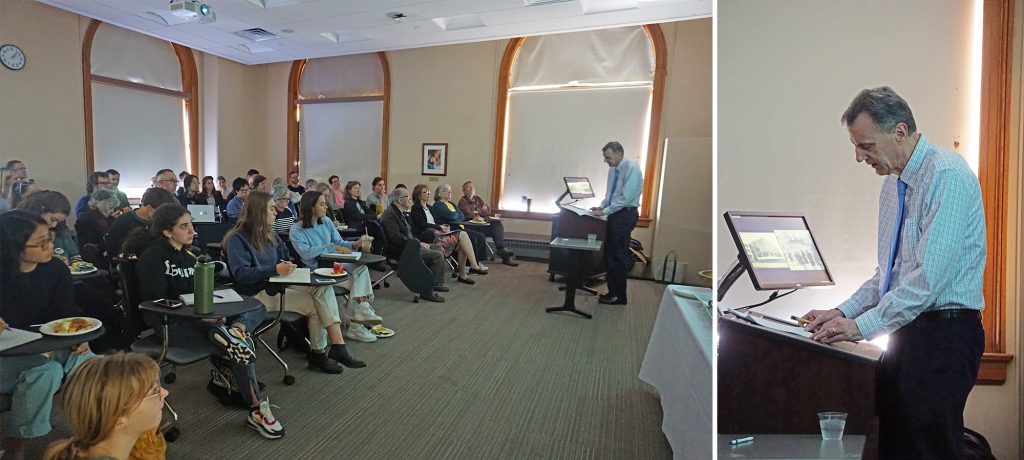Since 2014, the German Studies Department at Wesleyan has applied for and received funding five times from the Embassy of the Federal Republic of Germany in Washington D.C. The funding supports events designed to inform the public and spark discussion about contemporary Germany, including relations between the U.S. and the Federal Republic. The events take place each fall as part of the Campus Weeks Program, one of the German Embassy’s flagship public relations outreach programs in the United States. Around 50 universities and colleges in the U.S. have participated since 2009, with the Embassy funding and supporting more than 400 projects. This year the events form part of the campaign “Wunderbar Together,” marking the Year of German–American Friendship. The events and exhibitions on business and industry, politics, education, culture, and science highlight the importance of the strong transatlantic partnership that has developed since the end of World War II, based on historical ties, shared values, and cooperation in many areas.
In the first four series, German Studies, in conjunction with the Departments of History and Government and Jewish Studies, organized talks on the Fall of the Berlin Wall; a year later on 25 years of German Unity and events on Jewish Life in Germany before and after the Holocaust. In 2017, the year of the German national elections, we focused on the elections as well as on nationalism and patriotism and the troubling rise of the far-right in Germany. This year’s topic is the Bauhaus, the groundbreaking school of the arts founded 100 years ago in Weimar.
With the help of Professors Katherine Kuenzli and Joseph Siry of the Department of Art and Art History, Professor Iris Bork-Goldfield has planned a series of talks to highlight important aspects of the Bauhaus. A small poster exhibition has been mounted on the fourth floor of Fisk Hall. On September 19, Joe Siry gave a wonderful introductory lecture on the role of the Bauhaus in architecture then and now.


The next lecture, “Bauhaus the Cradle of Modernism: Myth or Reality?”, will be given on October 16 in Boger 112 at 4:30 p.m. by Brenda Danilowitz, the chief curator at the Josef and Anni Albers Foundation.
The final lecture, scheduled for October 29, also in Boger 112 at 4:30p.m., will be presented by Prof. Joel Westerdale of Smith College. He will speak on “The Film of Tomorrow! Walter Ruttmann and the Bauhaus.” As a complement to the lecture series, Profs. Kuenzli and Bork-Goldfield are offering a partial credit tutorial. The students will visit the Josef and Anni Albers Foundation and will also attend a special viewing of works by Bauhaus-affiliated artists from the Davison Art Center’s collection, presented by the curator, Miya Tokumitsu, and Professor Kuenzli.



